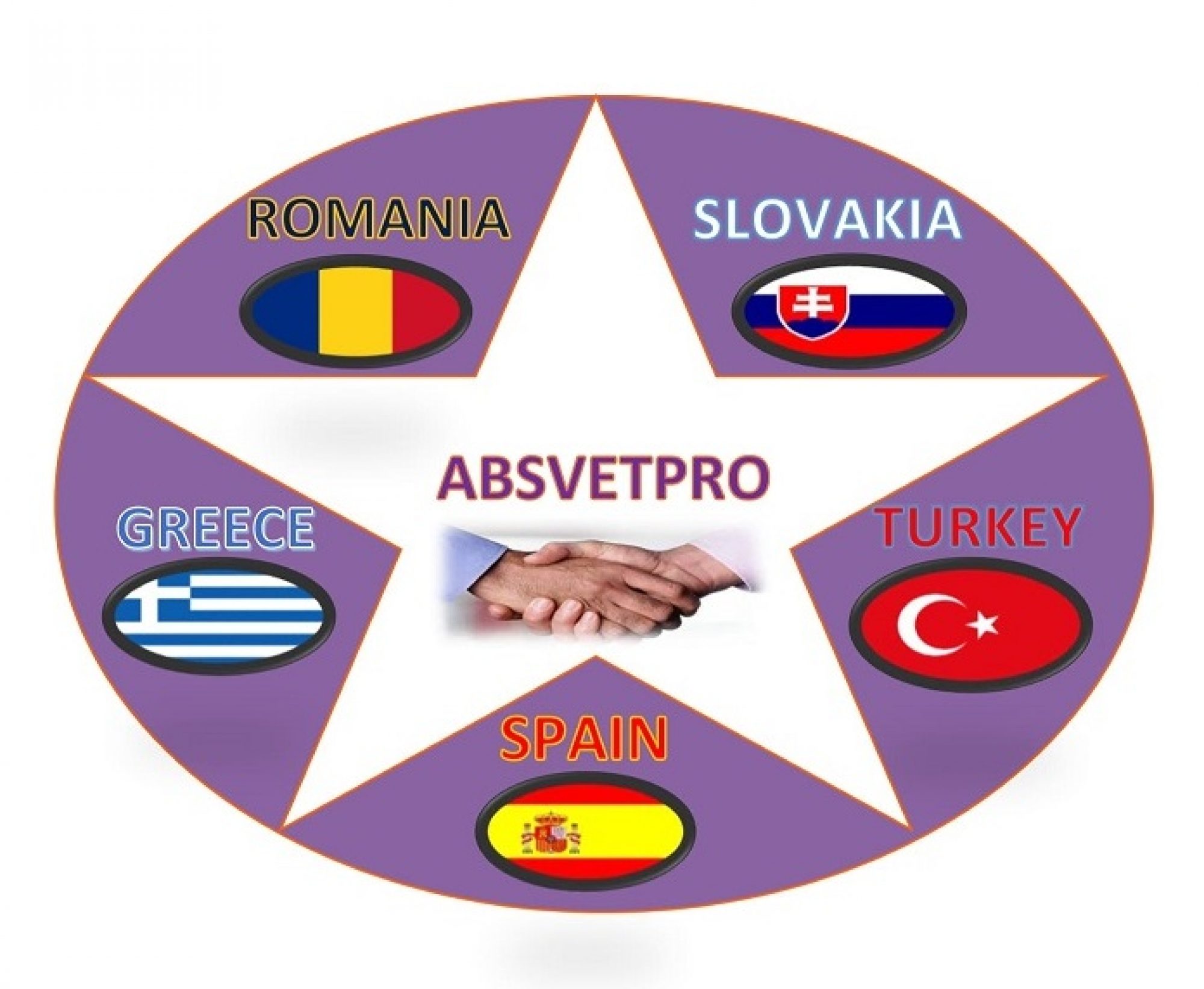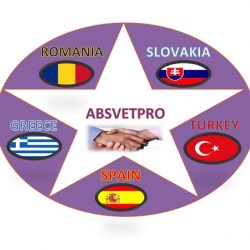FIRST MEETING

The first transnational meeting Project Number: 2019-1-ES01-KA202-065847, co-funded by the Erasmus+ Programme of the European Union, by SEPIE – Spanish Service for the Internationalization of Education, was held at the IES GUSTAVO ADOLFO BÉCQUER, in Seville, It started on November 28.
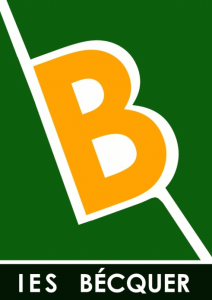
The main objective of our Erasmus + 202 project is “REDUCING ABSENTEEISM THROUGH TEAMWORK, MOTIVATION AND INSERTION OF IMMIGRATION”.
Our partners are vocational training institutes and are the following:
– DIEK Agriniou – ΔΙΕΚ Αγρινίου (Agriniou – Greece)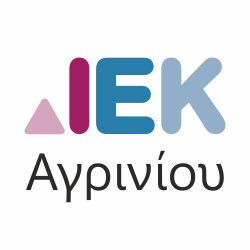
Liceul Tehnologic Elena Caragiani (Tecuci- Romania)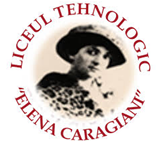
Gölbaşı Mesleki ve Teknik Anadolu Lisesi (Ankara – Turkey)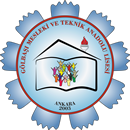
Statny Institut Odborneho Vzdelavania (Bratislava – Slovakia)

Project partners were received by Mr. Francisco Jesús Ponce Capìtán, representing the Educational Planning Service of the Ministry of Education of Andalusia in Seville, and Ms. Consuelo G.Pradilla Gordillo, Headmistress of the IES Gustavo Adolfo Bécquer. Both welcomed the partners and desired productive work in the project and success in their objectives.
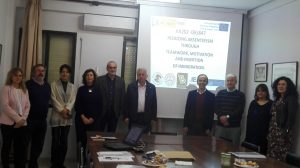
We start the meeting at 10:30 am, dealing with all the most important issues to deal with during the 24 months that the project will last.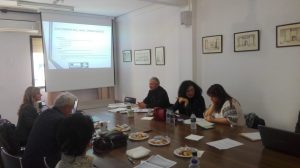
- On avoid school absenteeism, as early leaving of the educational and vocational system by studying data of early leavers in EU and partner countries, studying partner institutions data and finding and sharing good practices driven to avoid it.
- Integration of immigrant students: Studying data of immigrant population in EU and partner countries, and also in partner institutions, and finding and sharing good practices related to those students. It will also be a solidary and intercultural event.
- Improve student skills: Work-based learning is the best option to improve student skills. In this way, we will use co-working, using simulated companies, English as language for communications, ICT resources (cloud, drive, …), and entrepreneurial and other digital resources.
- Exchange good innovation practices in active methodologies: Sharing good practices in all the fields that can be useful for the students, for example, ICT, entrepreneurship, digital skills, languages skills, … All of them will be based on the experience of partners and the recommendations of EU about work-based learning.
- Studying and comparison of the partners VET system: Visiting each partner and receiving information about their VET systems and labor markets, and making flyers, brochures and different info in English about how the VET system works in different countries.
Presentation Objectives, Finantial Rules, Quality Reports
Presentation Prodetur Spanish Good Practice
The second day, on November 29, we started at 10am. The topic to be discussed was the creation of a company among all the partners:
-
- Company simulation
- List of activities
- Assignment of activities to each country
- Commitments: How often video calls between students
- Commitments: Social networks.
-
is co-working between students from different schools in order to simulate the organization and management of a company. In this way, after the presentation and proposal of the Coordinator, partners agree on:
- Name of the company (Absvetpro)
- Logo
- Activity of the company:
- Departments of the company:
- Marketing will be developed by Romanian partner, and they will have to create the catalogue and flyers of the company for the next meeting.
- Buying and Selling will be developed by Greek partner and they will have to prepare place orders and delivery notes for the next meeting.
- Warehouse will be developed by Turkish partner and they will create the system for items control, after Romanian partner send him the catalogue
- Administration, Treasury and Financial department will be developed by Spanish partner. All the partners agree on starting with 60.000 € as share capital.
- All the partners must develop Human Resources Department, and all of them will have to create Europass CV´s of candidates and video interviews with potential candidates for the next meeting.
- All partners have to make a powtoon explaining the steps needed to set up a company in their countries, for the next meeting.
- All partners will generate some materials about taxes that a company must pay in their country.
All partners agreed that documents will be hosted in a drive, and that communications will be made by business letters and video calls. Video calls will be made twice a month.
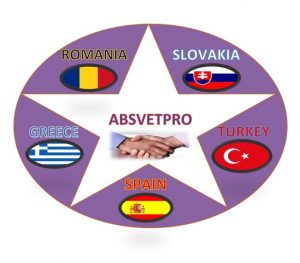
This is the logo of our simulated company
This is the presentation of all the topics covered.
Analysis for Absenteeism and Immigration Insertion in Educational System
On November 29, we continued with all the pending points and at 3:30 pm it began in the theater of our institute “The solidarity event”. All the students of the formative cycles brought a plate of food from their homes. And so we managed to taste delicacies from Senegal, Spain, Morocco, Cuba, Peru, Greece, Turkia, the Dominican Republic, Bolivia, Ecuador.
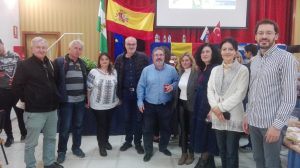
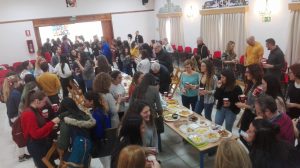
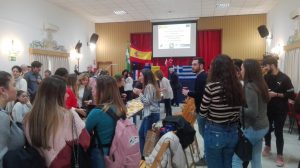
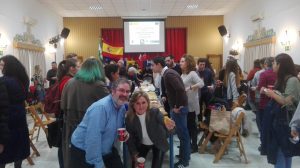
MINUTES OF THE 1 TRANSNATIONAL MEETING
PROJECT: “PALIAR EL ABSENTISMO A TRAVÉS DEL TRABAJO EN EQUIPO, MOTIVACIÓN, DESARROLLO PERSONAL E INSERCIÓN DE LA INMIGRACIÓN – REDUCING ABSENTEEISM THROUGH TEAMWORK, MOTIVATION AND INSERTION OF IMMIGRATION”
KA202 – Strategic Partnerships for vocational education and training
Project Number: 2019-1-ES01-KA202-065847, co-funded by the Erasmus+ Programme of the European Union, by SEPIE – Spanish Service for the Internationalization of Education.
- ATTENDANCE
|
Person |
Organization |
|
Vasilis Karagiannis |
DIEK Agriniou – ΔΙΕΚ Αγρινίου (Agriniou – Greece) |
|
Mirela Dragomir |
Liceul Tehnologic Elena Caragiani (Tecuci- Romania) |
|
Veronica Onica |
Liceul Tehnologic Elena Caragiani (Tecuci- Romania) |
|
Ladislav Satka |
Statny Institut Odborneho Vzdelavania (Bratislava – Slovakia) |
|
Katarina Hazuchova |
Statny Institut Odborneho Vzdelavania (Bratislava – Slovakia) |
|
Hüseyin Gökçe |
Gölbaşı Mesleki ve Teknik Anadolu Lisesi (Ankara – Turkey) |
|
Carmen Manrique |
IES Gustavo Adolfo Bécquer (Seville – Spain) |
|
Julio Flores |
IES Gustavo Adolfo Bécquer (Seville – Spain) |
- MEETING LOCATION
Annex of the Teacher´s room at IES Gustavo Adolfo Bécquer)
Calle López de Gomara, 16 – Seville (41010) – Spain
- MEETING START
Meeting Schedule Starts at 9:30 on November 28th 2019
Meeting Actual Starts at 9:30 on November 28th 2019
- AGENDA
Thursday November 28th 2019
- Reception and Visit to IES Bécquer:
Project partners were received by Mr. Francisco Jesús Ponce Capìtán, representing the Educational Planning Service of the Ministry of Education of Andalusia in Seville, and Ms. Consuelo G.Pradilla Gordillo, Headmistress of the IES Gustavo Adolfo Bécquer. Both welcomed the partners and desired productive work in the project and success in their objectives.
- Presentation of the partners:
In order, the partners presented their organizations and activities, and the persons who will work on this project:
- Vasilis Karagiannis of DIEK Agriniou (Agriniou-Greece)
- Mirela Dragomir and Ms. Veronica Onica of Liceul Tehnologic Elena Caragiani (Tecuci- Romania)
- Ladislav Satka and Ms. Katarina Hazuchova of Statny Institut Odborneho Vzdelavania (Bratislava – Slovakia)
- Hüseyin Gökçe of Gölbaşı Meslekive Teknik Anadolu Lisesi (Ankara – Turkey)
- Julio Flores and Ms. Carmen Manrique of IES Gustavo Adolfo Bécquer (Seville-Spain).
- Project objectives
- The objectives of the project were explained and their relation with the VET sectored priorities and the horizontal priority of open education and innovative practices in digital era. The Coordinator explained the proposal of his work on each objective:
- On avoid school absenteeism, as early leaving of the educational and vocational system by studying data of early leavers in EU and partner countries, studying partner institutions data and finding and sharing good practices driven to avoid it.
- Integration of immigrant students: Studying data of immigrant population in EU and partner countries, and also in partner institutions, and finding and sharing good practices related to those students. It will also be a solidary and intercultural event.
- Improve student skills: Work-based learning is the best option to improve student skills. In this way, we will use co-working, using simulated companies, English as language for communications, ICT resources (cloud, drive, …), and entrepreneurial and other digital resources.
- Exchange good innovation practices in active methodologies: Sharing good practices in all the fields that can be useful for the students, for example, ICT, entrepreneurship, digital skills, languages skills, … All of them will be based on the experience of partners and the recommendations of EU about work-based learning.
- Studying and comparison of the partners VET system: Visiting each partner and receiving information about their VET systems and labor markets, and making flyers, brochures and different info in English about how the VET system works in different countries.
- The coordinator also explained the items we will use for the project. It includes a website (www.erasmusvet.eu) and other resources.
- Project will have 5 transnational meetings that will take place in:
- Spain: 28th-29th November 2019
- Slovakia: February 2020
- Turkey: April 2020
- Romania: October 2020
- Greece: March 2021
- Financial rules
- The coordinator explains that in this project we have only two cost items:
- Project management and implementation
- Transnational project meetings
- The coordinator explains the amounts each partner has in each cost item and which eligible costs are included in each item cost. Both item costs are per unit cost.
- The coordinator explains how the payments will be developed throughout all the duration of the project. He also explains the formal obligations for the execution and justification of the cost items that all the partners have to take care of. It includes:
- Minutes of each meeting
- Signature of assistants
- Certificates (to prove the existence of a formal link with people attending transnational project meetings)
- Travel documentation
- Insurance, and the areas that must be covered in each insurance contract
- Formal obligations for the execution of the project:
- Mobility Tool+
- Platform for Erasmus + Projects Results
- Quality reports
- Also as formal obligation, the project will be notified to SEPIE (Spanish National Agency for the Internationalization of Education), and external staff hired will make these reports. It will be made in the Mobility Tool and Coordinator is responsible of it. The partners must provide the information for those reports.
- The valued criteria were explained and also how the intermediate and final reports will be based on. It is really important our quality reports because if they are not as good as SEPIE considers, reduction in the cost of the eligible expenses may be applied because of deficient, partial or late execution.
- Spanish Example of a good practice: Prodetur – Educational platform that simulates a company: Partners visited the classroom where students where working with Prodetur and received information about how it works and the advantages using it. Spanish partner explains all the possibilities of this platform and also the possibility to use it by schools from other countries
- Vocational and Educational Training (VET) System in Spain: The Spanish educational system is explained, especially in the VET field. On this way, OCDE brochures of the different educational systems are given to compare and in order to find some similarities and differences between educative and VET systems of partner countries.
Friday November 29th 2019
- Work on the project
- Company simulation
- List of activities
- Assignment of activities to each country
- Commitments: How often video calls between students
- Commitments: Social networks.
One of the project´s objective is co-working between students from different schools in order to simulate the organization and management of a company. In this way, after the presentation and proposal of the Coordinator, partners agree on:
- Name of the company (Absvetpro)
- Logo
- Activity of the company
- Departments of the company:
- Marketing will be developed by Romanian partner, and they will have to create the catalogue and flyers of the company for the next meeting.
- Buying and Selling will be developed by Greek partner and they will have to prepare place orders and delivery notes for the next meeting.
- Warehouse will be developed by Turkish partner and they will create the system for items control, after Romanian partner send him the catalogue
- Administration, Treasury and Financial department will be developed by Spanish partner. All the partners agree on starting with 60.000 € as share capital.
- All the partners must develop Human Resources Department, and all of them will have to create Europass CV´s of candidates and video interviews with potential candidates for the next meeting.
- All partners have to make a powtoon explaining the steps needed to set up a company in their countries, for the next meeting.
- All partners will generate some materials about taxes that a company must pay in their country.
All partners agreed that documents will be hosted in a drive, and that communications will be made by business letters and video calls. Video calls will be made twice a month.
It is also very important that our project must be advertised and publicized therefore, so all partners will have to contribute with the required info for the website and also for the social media that will be create for the project (Facebook, Instagram, Twitter,…). In this way, all partners agreed to disseminate our project and objectives as much as possible, in the local, national or international area, and also in this way, a role-up must be created to inform and publicize the project. The role-up will include logo, EU co-funded logo, title, number, partners and webpage of the project. Also we will disseminate the project on our websites and information will have to be sent to be published on the website project. Finally, partners accepted their responsibilities in the project, results and how we will measure them and the time schedule.
On the same way, partners agree on the dates for the next meetings:
- In Bratislava (Slovakia) on February 26th and 27th 2020
- In Ankara (Turkey) on April 27th and 28th 2020
- Analysis for Absenteeism and Immigration Insertion in Educational System: How to work the integration of immigrant students
- Information and data are given based on the strategic framework Education and Training 2020 of the European Union. In this way, the third objective of this framework tries to increase equity, social cohesion and active citizenship by pursuing work on early leavers and developing cooperation on migrants. Partners have been analyzing data and info and it will be worked during all the project.
- Solidarity and Intercultural event: Tasting meals from other countries.
- In the afternoon, an international and intercultural event took place in the school with the participation of the partners and Spanish students. The main objective was to share and enjoy music and food from different countries as way to integrate immigrants and meet different cultures.
- Meeting Evaluation and Certification:
- Partners evaluated the meeting and received the certification of their attendance.
- End meeting
Meeting Schedule Ends at 18:00 on November 29th 2019.
Meeting Actual Ends at 18:00 on November 29th 2019.
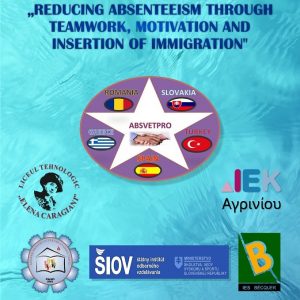
A SOLIDARITY EVENT WAS CELEBRATED.
EACH STUDENT PROVIDED A TYPICAL FOOD PLATE FROM HIS COUNTRY.
EVERYTHING WAS GOOD!
we tasted meals from Perú, Venezuela, Senegal, República Dominicana, Bolivia, España, Ecuador, Marruecos, Grecia, Rumanía, Turquía, Colombia.
Statny Institut Odborneho Vzdelavania – Bratislava – SLOVAKIA
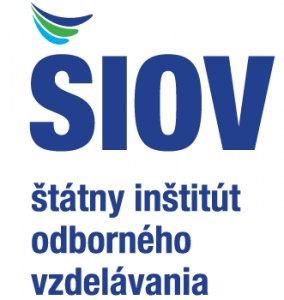 SIOV – State Institute of Vocational education and training (SIOV) in Bratislava is a regulatory body for all network of secondary VET schools in Slovakia. Institute has experience in preparation of educational state and schools programs. Institute supports VET teacher training activities. Directly at the Institute was established Slovak center of school training firms that support entrepreneurship education for young people.
SIOV – State Institute of Vocational education and training (SIOV) in Bratislava is a regulatory body for all network of secondary VET schools in Slovakia. Institute has experience in preparation of educational state and schools programs. Institute supports VET teacher training activities. Directly at the Institute was established Slovak center of school training firms that support entrepreneurship education for young people.
IES Gustavo Adolfo Bécquer – Sevilla – SPAIN
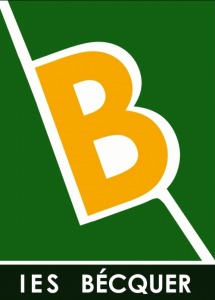
The IES Gustavo Adolfo Bécquer, a public center under the Ministry of Education and Sports of the Junta de Andalucía, is characterized by its constant commitment to innovation and the persevering pursuit of quality. This is evidenced by facts such as that it was ascribed to bilingualism and the implementation of new technologies from the beginning of these ambitious projects.
The lessons we teach are, in the morning shift, Compulsory Secondary Education, Baccalaureate and Basic Professional Training (Administrative Services). In the afternoon, our classrooms welcome students of Secondary Education for Adults (Semipresencial), Baccalaureate of Adults (Face-to-Face and Semi-Presence), Initial Vocational Training of Middle Grade (Administrative Management), and initial Vocational Training of Higher Degree (cycles of Administration and Finance and Management Assistance).
The total number of students is around nine hundred and has a staff of seventy-three teachers for the 2019/20 course.
EUROPEAN EXPERIENCE
We believe that in a society like the current one, immersed in a process of globalization that is increasingly integrated within the common European framework, requires understanding, cooperation, exchange of ideas and citizen mobility. Therefore, we have been organizing activities for many years in which our teachers and our students have participated with centers in Italy, the United Kingdom and Germany, in addition to receiving visits from Dutch, Austrian, French teachers, etc.
We list below the activities that include mobility of the last two courses:
Cultural immersion (Exmouth, U.K. 2017-18)
Practical Methodology for Teachers (U.K. 2017-2018)
French ict tools for Learning and Teaching in School (French, 2018-19)
Creative Teaching in te Secondary CLIC Classroom (U.K. 2018-19)
Digital Turn (Holland 2018-19)
Benchmarking Course Finnish Education (Finland 2018-19)
Student Exchange with Johann Heinrich Voss Schule (Germany 2018-19)
And in this course, we have already underway:
Visit of Austrian Professional Training teachers. The exchange of experiences that arise from here may serve for future mobility activities.
Exchange visit of the Lycée Notre Dame Tourteliere de Puozauges. Exchange of information on the respective educational systems.
2019-1-ESO1-KA 202-065847. The title of the project is: To alleviate absenteeism through teamwork, motivation, personal development and immigration insertion. We are the coordinators of the working group with teachers from Turkey, Romania, Slovakia and Greece.
2019-1-ESO1-KA 103-062918. Mobility for the FCT in the EU of our students.
As can be seen from the foregoing, the IES Gustavo Adolfo Bécquer has always considered that the relations and exchanges of students and teachers with people from other countries and educational systems, but that pursue common objectives, and under the protection of European institutions, are an opportunity extraordinary for everyone.
And for this course, teachers and students of our cycles join this mobility project. Thus, based on the awareness of belonging to the European Union, we have objectives not only strictly academic, but also professional as they are – in a broad sense – to study the European labor market and favor the labor insertion of our students.
Thus, we can firmly affirm that in this European development plan will participate:
. The direct team, which will encourage the implementation of as many viable and enriching projects for the center.
. Teachers, who want to improve their language training and their specific area of training. We already include, in addition to teachers in the linguistic and non-linguistic areas, the Professional Training partners.
. Secondary and Baccalaureate students, in the programs or activities of exchanges and / or cultural visits.
. Students of the Training Cycles who wish to carry out the Training in Work Centers module in EU countries.
GENERAL NEEDS OF INTERNATIONALIZATION
We do not believe it is necessary to waste words to explain how important it is to improve the linguistic competence of all students and teachers. All areas are included: the scientific, social, labor and, even, why not say, the simple citizen who travels the countries of our cultural environment. Undoubtedly, learning foreign languages helps develop more respectful attitudes towards people from different countries that puts us in touch with other cultures.
We also found the need to provide bilingual interactive content that integrates with the new technologies that we can already use in our institute at this time. Therefore, we believe that training by teachers is necessary, since the existence of multimedia platforms for teaching any subject or subject is already in reality and, therefore, almost unavoidable use by teachers.
PROPOSED OBJECTIVES
Our objectives try to meet the needs so that we can gradually incorporate them (as we achieve) to our classroom schedules and the teaching-learning process methodologies. They are the following:
1. Develop awareness of relevance to the EU. For this it is necessary to know and sensitize with the values of this space (not only geographical)
2. Promote and encourage the mobility of students and teachers for their professional development.
3. Involve the families of our students in the European projection of our center.
4. Promote the improvement in quality, innovation and internationalization of our institute.
5. Observe the application of other educational systems as well as their systems of practices in companies.
6. Improve the linguistic training of teachers and students.
7. Improve the capacity to respond to social, linguistic and cultural diversity.
8. Stimulate the improvement of the linguistic qualification of students in order to access European studies and / or labor market.
9. Open direct communication channels between the IES GUSTAVO ADOLFO BÉCQUER and EU companies.
10. Give our students the opportunity to put their skills into practice and learn other ways to develop their work.
Golbasi Mesleki ve Teknik Anadolu Lisesi – Ankara – TURKEY
 School Name: Golbasi Mesleki ve Teknik Anadolu Lisesi
School Name: Golbasi Mesleki ve Teknik Anadolu Lisesi
(Golbasi Vocational and Technical Anatolian High School)
Our school was opened in 2003. Our school is in the capital city of Turkey, Ankara. International transportation is very easy.
We have 2 lakes in Golbasi and Golbasi means Lakeside in Turkish.
The area of our scool is 17400 m2 and 3 buildings. The area of buildings is 5000 m2, the area of garden is 12400 m2, and sportive area is 600 m2.
The number of staff is 92. The number of students is 1000. We have 850 day students and 150 evening students ( adults students).
The age group of students is between 14-18 for day (normal) students and age of adult students is higher than 18.
Now in our school carries on the education with these fields:
• Technology of wooden Field.
• Technology of ICT (Computer) Field
• Electric and Electronics technology Field
• Metal Technology Field.
We have implemented employmet courses in 2009, 2010 about Carpentery, Welding, Automatic Control
We have participated in LDV mobility projects in 2009, 2010, 2011, 2012, 2014, 2015 as a partner and completed them.
In 2012 and 2013, two teachers of my school attended in Comenius in-service training.
We completed a LDV PARTNERSHIP project during 2013-2015. Its website is http://traindipicts.eu The name of the project is that “Training Disabled People Through ICT Solutions”
We completed an Erasmus + KA1 school education project in 2016. Its name ws “The eight methods of fighting early school leaving.”
We managed an Erasmus + KA102 VET mobility project (2016-2018).
We managed an Erasmus+ and a KA202 VET partnership project (Project Name: Teaching and learning microcontrollers via PicBasicPro(PBP) language in VET, Project date: 2016-2018, Project website: www.pbpinvet.eu)
We started an Erasmus+ and a KA202 VET partnership project as a partner in 2019. Project No: “2019-1-ES01-KA202-065847”. Project name: “Reducing Absenteeism Through Teamwork, Motivation and Insertion of Immigration”.
Liceul Tehnologic Elena Caragiani – Tecuci – ROMANIA
The story of the Technological High Scho ol Elena Caragiani begins on the 1st of September 1990, when within the “Gheorghe Asachi” School, Tecuci set up 6 apprentice classes. With the qualifications, in addition to 6 professional school qualifications (Vegetable preparer, Clothing, Car paint, Electrician maintenance, Welding and Locksmith), in the following year, 1991-1992, the Professional School is formed. This school works for 2 years because on the 1st September 1993, 3 high school classes are established. It ts the birth certificate of the “industrial School Group”.
ol Elena Caragiani begins on the 1st of September 1990, when within the “Gheorghe Asachi” School, Tecuci set up 6 apprentice classes. With the qualifications, in addition to 6 professional school qualifications (Vegetable preparer, Clothing, Car paint, Electrician maintenance, Welding and Locksmith), in the following year, 1991-1992, the Professional School is formed. This school works for 2 years because on the 1st September 1993, 3 high school classes are established. It ts the birth certificate of the “industrial School Group”.
From the 1st of September 2012 the name of the school changes from the “Industrial School Group” to “Technological High School “Elena Caragiani” “.
Elena Caragiani was the first woman aviator of Romania and she was born in Tecuci. She dared to apply for a pilot’s patent in a century in which this right belonged almost exclusively to men. She was the world’s first journalist who wrote reports from the plane.
Besides laboratories, workshops, school and medical offices, the High School also enjoys the existence the The School’s library.
For 28 years since its establishment, the name of the school gas been mentioned numerous times at local, country, national and international level.
We were praised, envied, disputed, but we had, we have and we will definitely have winners.
Between 2008 and 1014, the school’s students and teachers have carried out four European projects: “Entrepreneurial skills for organizing rural tourism, in areas with a poorly developed economy”, “the Prevention of discrimination and violence against women”, “Forests for everyone, all for forests”, “Broadening our cultural horizons”.
Our school has developed partnerships with NGOs, high school or university institutions, adult schools for Italy, Bulgaria, Turkey, Portugal, Poland, Lithuania, Great Britain.
In the school year 2019-2020, at „Elena Caragiani” Technological High School, 860 students are enrolled and 72 teachers are teaching. Students can attend high school or vocational education courses.
High school education is organized on the following profiles:
- Technical, with qualifications:
– Mechanical field: Maintenance and repair mechanical technician, Metrologist technician, Electromechanical technician.
– Textile and leather domain: Textile designer, Technician in the textile industry
– Electrical field: Electromechanical technician, Technician in electrical installations, Electrotechnist technician
- Domain of services: Tourism technician.
- Domain of commerce: Technician in acquisition and contracting.
Vocational education courses is organized on the following profiles:
- Technical, with qualifications:
– Mechanical field: Auto mechanic, Tinsmith auto painter, Operator on machines with numerical control, Welder
– Textile and leather domain: Manufacture of textile products
– Electrical field: Low voltage electrician, Electrician builder
- Domain of services: Hotel worker
- Domain of commerce: Seller trader
DIEK Agriniou – Agriniou – GREECE
 The Public Institute of Vocational Training of Agrinio DIEK Agriniou is a public organization located in Agrinio. It is a city of approximately 47,000 inhabitants and the major urban center of Aitoloakarnania Prefecture in Western Greece. It is 280 km west of Athens and it is connected by public transport.
The Public Institute of Vocational Training of Agrinio DIEK Agriniou is a public organization located in Agrinio. It is a city of approximately 47,000 inhabitants and the major urban center of Aitoloakarnania Prefecture in Western Greece. It is 280 km west of Athens and it is connected by public transport.
DIEK Agriniou provide adult education, institutionalized by the Greek State for the provision of initial vocational training services to high school and lyceum graduates. The operation of DIEK is supervised by the General Secretariat for Lifelong Learning, with the primary responsibility for shaping and supervising their educational framework.
Studying at DIEK Agriniou lasts 4 semesters, 2 years, and there is a compulsory internship period of one semester. Studying is compulsory in the afternoon from 15:15 until 19:25 and for the notes and course work there is the possibility of electronic method via the online platform E-class. At DIEK Agriniou can study at any age and after completing his studies, the certificate provided in accordance with the European Qualifications Framework is of a level 5.
The certification system for the initial vocational training of DIEK is implemented by the National Organization for the Certification of Qualifications and Vocational Guidance (EOPPEP). Under the responsibility of EOPEPEP is also included the determination of the professional rights of DIEK graduates.
Our Institute has 1 Director, 2 Deputy Directors, 73 Teachers and 3 Administrative staff. Every year about 270 students are attending. During this year, 18 departments with the following specialties are implemented: Museum and archeological sites guard, Sports coach, Savior – ambulance caregiver, Nursing assistant, Child care assistant, Clothing and footwear technology – Fashion designer, Computer applications designer – developer of video games), Secretary of directors and senior executives, Pharmacy assistant, Computerized accountant – tax consultant, Aesthetics and makeup artist, Computers technician, Hairdressing artist.
Our institute has 17 classes, 2 Computer labs, 5 labs for internship, 1 library, 1 director’s office, 2 offices of deputy directors, 1 communal room for teachers, 1 canteen. The whole is a building of 1.000 square meters and located in Agios Konstantinow area of Agrinio City.
The socio-economic environment of the city can be described as follows:
– A former agricultural area where the main occupation of the inhabitants was the cultivation of tobacco and the city was prosperous. It was also the biggest commercial center of Aitoloakarnania. Following the implementation of the EU policies on agriculture and the change of crops, economic downturn has occurred in the city, with the result that young people, in particular, are seizing their departure from the city for a job search, especially in the capital Athens.
ETWINNING SPACE
Our ABSVETPRO project appears in full on both Etwinning Live and Etwinning Space. Proof of this, we have the certificate of registration of the project, provided by Etwinning.
CERTIFICATION OF REGISTER OF PROTECT IN ETWINNING
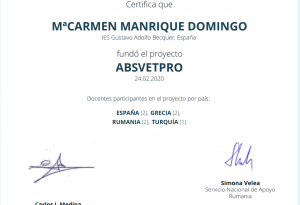
This course we have applied for the seal of quality, granted by Etwinning. We hope that they will grant it to us, since it will bring more prestige to our project.
Here is the link to access the platform:
